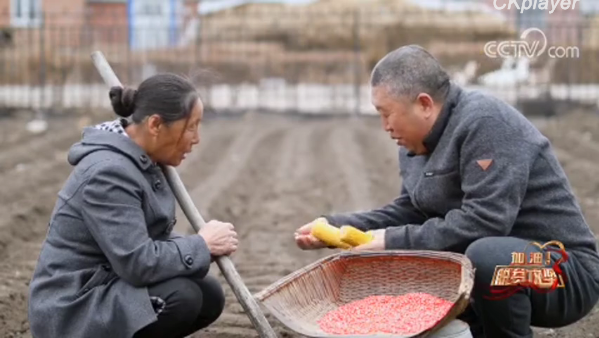Corn on the black soil lifts villagers out of poverty
- By Xu Xiaoxuan
 0 Comment(s)
0 Comment(s) Print
Print E-mail China.org.cn, August 24, 2020
E-mail China.org.cn, August 24, 2020

Qu Jiali, born in a village of Hailun city, Heilongjiang province in northeast China, one of the world's three major chernozem regions, has not only achieved individual career success but made a major contribution to poverty elimination.
Born into a farming family, and after serving in the army for two years in Liaoning province (also in the northeast) in the 1980s, Qu returned to his hometown and contracted for 3000 mu (200 hectares) of land to cultivate maize.
"Although a profitable industry now, grain growth back then was a loss-making sector. My grandpa was very upset about my decision to leave the army and return to the land, but I just wanted to come back where my families lived," said Qu.
It wasn't all plain sailing. "At the beginning, with neither a distributor nor a good local market, a large portion of my corn was left to rot in the field," Qu recalled with a sigh.
But he didn't give up. He traveled by train from Heilongjiang as far as Shanghai with a rice cooker and a bag of corn on his back, aiming to approach as many distributors as possible. He promoted his corn by letting distributors taste the boiled corn for free initially.
Qu's corn business didn't see a turnaround until 2004 when a large distributor in Shanghai ordered 120,000 cobs of corn from him.
Now, Qu Jiali has become a household name in the corn business in northeast China. His corns have been exported to Japan and South Korea.
On top of offline sales, Qu began to go online in 2018. By the end of 2019, he had sold more than 11 million cobs of corn through e-commerce platforms.
Qu has led a better life himself and wanted the same for his fellow villagers.
Relying on the nutrient black soil in his hometown, Qu Jiali turned to a new type of corn that could be eaten raw and whose selling price was three times higher than the regular type. He distributed seeds to villagers and provided them with technical guidance for free.
After the harvest, to introduce more of the villagers' corn onto the market, Qu went on to seek assistance from the poverty relief initiative launched by the e-commerce giant Alibaba. By virtue of the e-commerce platforms such as Taobao and Tmall as well as the corn-promoting livestreaming, as of August, 2019, more than 4 million cobs of corn had been sold online, with turnover exceeding 12 million yuan (about US$1.74 million).
In 2019 alone, thanks to the maize growth, 2107 poverty-stricken families registered in Hailun city saw their annual per capita income increasing by 1000 yuan (US$144.6). Some impoverished villagers living alone had an annual income growth of 8000 yuan (US$1156.8).
The 65-year-old villager Zhao Xiulian, with almost no income after her husband passed away two years ago and her only son was absent, earned nearly 6000 yuan (US$867.6) from the corn sale in 2019.



 Add your comments...
Add your comments...

